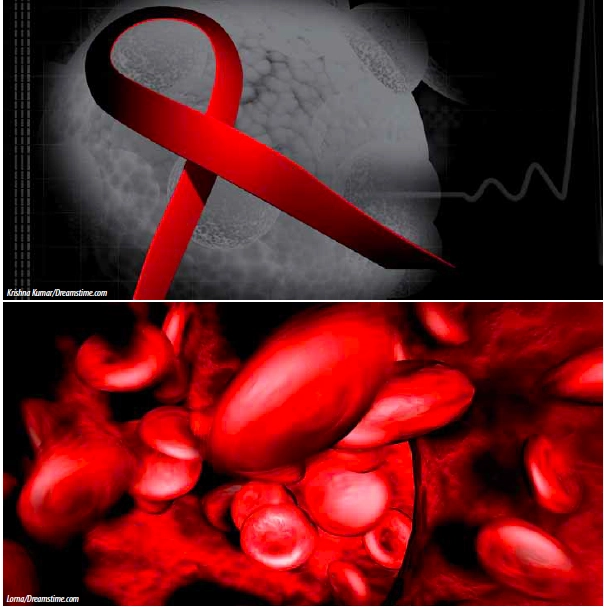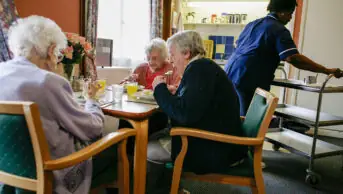
There may appear to be little common ground between the roles of specialist HIV pharmacist and haemato-oncology specialist, but that flies in the face of reality.
Both specialties deal with long-stay patients who are embarking on complex and lengthy drug therapy, enabling the pharmacist to develop a relationship with individuals over the course of their treatment. This type of contact is absent from specialties, such as acute medical admissions, surgery and intensive care. Both haemato-oncology and HIV involve complex drug regimens, where patients are usually prescribed many medicines concomitantly. Both treatment specialties also require focus on clinical trials of existing as well as new drugs.
The pharmacist has an essential role in prescribing, monitoring and preparing chemotherapy. There are now national standards for cancer chemotherapy, which specify that there must be a dedicated pharmacist responsible for the oncology pharmacy services within a trust, and I fulfil that role in my trust.
Since taking up the post of Macmillan specialist haemato-oncology pharmacist at Manchester Royal Infirmary in March 2006, I have also become an independent prescriber. My role includes prescribing chemotherapy and supportive medicines on the bone marrow transplant/leukaemia unit.
I kept up my interest in and knowledge of HIV by taking on the responsibility for HIV as well as haematology because, until recently, there was no specialist HIV pharmacist within the trust. My role now is to provide training and support for the newly appointed pharmacist in this area.
Treatment for HIV (as well as haemato-oncology) is entirely drug-based, so the pharmacist’s role is invaluable. Drug therapy for HIV is usually a lifelong enterprise and should be administered alongside counselling to ensure adherence to treatment. Anything less than 95 per cent adherence can be problematic.
Input from pharmacists is respected as an invaluable contribution to the management of HIV therapy. This is also the case with haematological cancers, for which intensive cytotoxic chemotherapy is required.
I developed an interest in HIV pharmacy early in my career when I took on a post as a rotational resident pharmacist at Chelsea and Westminister Hospital, London, in 1995. In 1996 I became senior pharmacist for HIV and genitourinary medicine at the same hospital and my interest has been reflected in every career move since then.
Latest evidence
Anti-HIV drug development is a fast-moving area, with the US Food and Drug Administration often fast-tracking drugs for approval. This means new anti-HIV drugs are usually available for use before they have been granted a UK product licence. My role used to involve managing the entry of such drugs. This included assessing eligibility criteria and liaising with pharmaceutical companies. I also contributed to drug guidelines at Chelsea and Westminster Hospital and was involved with the London HIV New Drugs Group, while based in London. The group reviews the evidence for new drugs, looks at the clinical- and cost-effectiveness of the drugs and ultimately approves them (or not) for use.
Clinical trials are an important aspect of an HIV pharmacist’s role — inevitably there will be some involvement in clinical trials and HIV pharmacists in the UK need to be familiar with EU directives and good clinical practice international standards for conducting such trials. In Manchester we have a clinical trials pharmacist who is responsible for the legislative aspects of trials and another pharmacist whose role it is to review protocols for the ethics committee, so these two functions are not integral to my new post as they were previously.
Clinical trials are also significant in haemato-oncology treatment and my new role as independent prescriber to patients who are undergoing chemotherapy necessitates having detailed knowledge of each clinical trial protocol.
Funding issues
Anti-HIV drugs are expensive (particularly because therapy is lifelong) so the drug expenditure can constitute a significant proportion of a trust’s overall drug budget.
In London, the commissioning of HIV therapy has been centralised via the London HIV Consortium. This allows patients to receive the same [approved] therapy from whichever hospital they attend. Outside London there may be variations in accessibility to therapies.
In Manchester all new drugs (HIV drugs included) have to be approved by our trust medicines management committee before use. Funding is not centralised as it is in London and it comes from the primary care trust (PCT) where the patient lives.
Haemato-oncology is similar to HIV in terms of new and high-cost drugs. It is important that decisions are made at the cancer network level regarding new therapies and that the hospital prescribes according to network guidelines. Ensuring that this happens is an important part of my role.
Chemotherapy and associated medicines are excluded from payment by results system. High cost anti-cancer drugs are funded by the patient’s PCT and, often, agreement has to be sought before prescribing for therapies not approved by the National Institute for Health and Clinical Excellence.
Future moves
HIV as a specialty is a fast-moving area, with new drugs being released regularly, making work exciting and challenging. However, despite the increasing number of new cases every year, HIV is still a relatively small specialty, with few positions for pharmacists across the UK compared with other areas of clinical pharmacy.
This could potentially limit career progression for pharmacists wishing to remain working in HIV. However, because the role is so diverse, the skills learnt as an HIV pharmacist are transferable to other clinical specialties and operational positions within pharmacy.
My experience of HIV cancers and the skills learnt within HIV enabled me to make the transition to haemato-oncology.
You may also be interested in

Two-prescriber sign-off no longer required for isotretinoin
Terence Wheeler (1945–2026)
